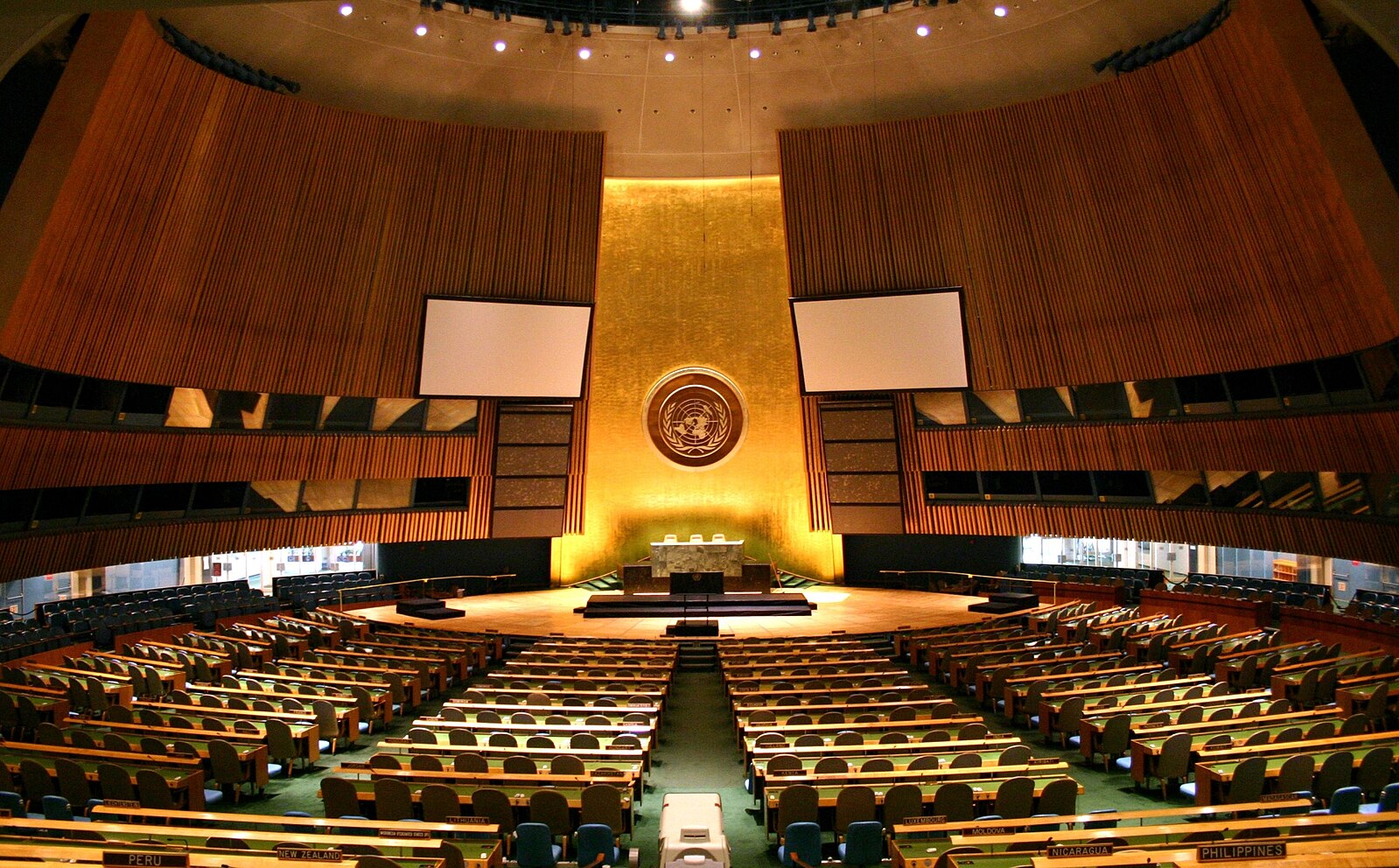On Feb. 4, 2025, President Donald Trump announced through an executive order that the United States would withdraw from the UN Human Rights Council. The same executive order granted Secretary of State Marco Rubio the authority to review all international organizations, conventions, and treaties the United States is a member of or helps fund. Trump’s sweeping executive order aligns with anti-institution actions taken during his first administration, playing into his broader “America First” agenda.
Trump’s “America First” ideology marks a complete departure from the values one has come to expect from the United States since the end of World War II. Once a champion of human rights and democracy worldwide, a leader spearheading global innovation and collaboration, and a respected mediator in international disputes, the United States under the Trump administration has aligned itself with autocracy through its support of Vladimir Putin’s Russia, and has alienated economic allies through extensive tariff policies. By challenging everything that America stands for on the global stage, Trump has, by association, fundamentally challenged what it means to be an American.
Data from the 50th edition of the biannual Harvard Youth Poll reveals an American identity crisis in how our nation’s youth view foreign policy and America’s role on the international stage. When asked to select the two aspects most central to American identity today, a plurality of respondents (35%) chose “individual rights and freedoms.” This 35% is notably uniform across partisan lines, unlike other aspects of American identity, like diversity and inclusion, which was more popular among Democrats, or the belief in Christian values, which had a clear Republican lean.
However, among young Americans who value “individual rights and freedoms,” Democrats are significantly more likely than Republicans to say the U.S. should intervene in other countries to prevent human rights violations. This suggests that while both groups prioritize personal freedoms, Democrats may be more inclined to see defending those rights globally as a key part of America’s role in the world.
Furthermore, while 46% of young Democrats wish to “remain in NATO and maintain current commitments,” 53% of young Republicans want to “leave NATO entirely.” Similarly, while only 25% of young Democrats believe “the United States spends too much money on aid to other countries,” 61% of young Republicans support the statement. These trends indicate broad support among young Republicans for Trump’s proposals to scale back U.S. involvement in NATO and reduce funding for programs like USAID, while conveying apprehension among young Democrats.
However, other aspects of Trump’s foreign policy agenda receive far less enthusiasm from his young conservative base. For example, less than half of Republican respondents (46%) indicate support for any tariffs on foreign goods. Interestingly, when the survey asked respondents in a follow-up question whether they would support the tariffs “even if they lead to higher prices for consumers in the U.S.,” Republican youth support fell to 43%, and opposition increased from 24% to 33%. Lukewarm support from Republican youth on tariffs reflects a broader hesitancy in the Republican Party to back Trump’s aggressive, across-the-board tariff strategy that is believed to raise domestic prices for consumers and destabilize the economy overall.
Perhaps one of the most concerning and puzzling insights from the poll regards the future of diplomatic strategy. Thirty-seven percent of respondents, a strong plurality, marked “Don’t know” when asked what approach should guide American engagement with the world. This response dominates the 23% who marked “Strategic partnerships with clear reciprocal benefits,” and the 19% who marked “Case-by-case engagement based on specific American interests.” Of the 37% of respondents who selected “Don’t know,” 21% identified with the Democratic Party, 20% identified with the Republican Party, and 50% identified as independent. Across the political spectrum, young Americans are unsure who they want their country to be on the global stage.
This brings us to a central dilemma reflected in this year’s data: Can putting “America First” by adopting an increasingly isolationist strategy paradoxically erode the sense of American pride that has historically been tied to our superpower status and prominent seat in international affairs?
Performing on the international stage, in all dimensions and capacities that the United States has done in the past, is one thing in which the country has reliably exhibited dominance. For decades, the United States was a force that fought against corruption, autocracy, and illiberal practices around the world. From spearheading the founding of the UN, creating and bankrolling the Marshall Plan, and establishing international financial systems like the World Bank and the IMF, America’s international reputation as a world leader has been undeniable. In that sense, the current administration’s “America First” policy represents a sharp deviation from the lifeblood of what makes us American by contradicting a core part of the American identity — the part that embraces our strong positioning as first in the global order to promote our cherished values of democracy and individual liberties to interested allies.
Architects of the “America First” foreign policy argue that their plan is the “surest path to working productively with other nations in a manner that advances Americans’ interests and security while avoiding economic overreach and unnecessary military conflicts.” When it comes to America’s historic roles in international institutions, they see a waste of resources and disproportional contributions from the United States. However, when less than half of young Americans (41%) say they are proud to be Americans, one must pause and consider the possibility that these international contributions serve as a crucial source of pride for many Americans.
While the “America First” approach does seem to echo our youth’s focus on individual freedoms and their shoulder shrug response to foreign policy strategy, it risks exacerbating this identity crisis into a more permanent culture of American apathy and atrophy. When our youth are expressing lukewarm pride in their country and a lack of conviction about America’s strategy abroad, perhaps embracing our starring role on the international stage is still our best bet for keeping America first.



